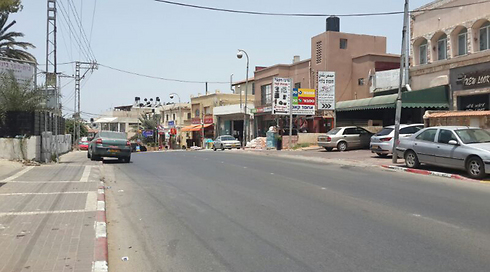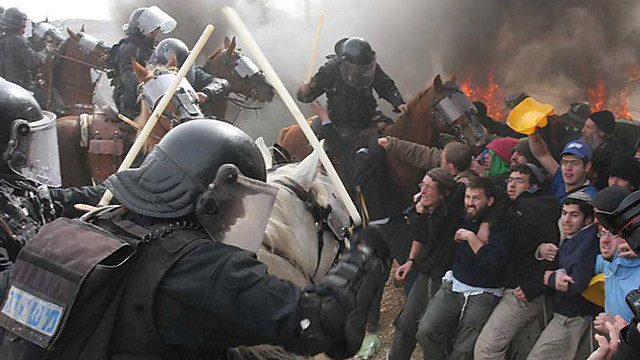The people in question are about 40 Jewish families who have established homes and businesses in Amona, a 98-acre land area registered with the authorities as belonging to residents of the Palestinian village Silwad in the West Bank. Following a long legal battle, the land was ordered to be returned to its owners, and the Jewish families' homes were ordered demolished. The High Court of Justice (HCJ) determined that the settlers be given a two-year period to prepare. The state did not push them very hard, and time ran out. Now, with the sound of the bulldozers' engines in their ears, the settlers are wishing for some sort of legislative reprieve.

I'm all for it. When you remove the lies, excuses, forged documents, and threats they tried to use during their legal battles, the residents of Amona are left with an indisputable claim: The Israeli government aided them, in practice, and with a wink in its eye. If our world was one of poetic justice, the property of politicians and government clerks who drove the people of Amona to do their deeds would have been used to compensate the aggrieved Palestinian land owners.
Since this kind of step is not possible, the state needs to pour a river of money onto the legal land owners from Silwad. If the regularization bill is approved, we'll be spared a violent confrontation (the settlers aren't hiding their intentions in this regard), and we'll be spared the unpleasant vision of an act of contempt towards the HCJ. A retroactively-enacted bill is quite a disaster, but it seems that without one, we're in for an even bigger calamity.
However, a law must apply to all civilians equally. While MKs work on the regularization bill, the government is demanding that 50,000 buildings, constructed without permits, must be demolished before it releases an aid package to Arab towns across Israel. These towns and buildings are also worthy of a "regularization."
Unlike the people of Amona, who forcefully and manipulatively took their neighbors' property, the people of Israel's Arab towns built on their private langs, using what little they had left in hand after the state confiscated vast swaths of land in its first years of existence. Yes, they violated state law, but the people of Amona are being given regularization after a double violation of state and international law, which doesn't allow the transference of a state's population onto conquered lands.
The convicted fellon's motives are usually used as a factor in sentencing, and here too the Arab people of Israel have a clear advantage. The Amonans didn’t do their deeds because they were experiencing some housing crisis, but because they desired nice home with great views, and they built these homes while aiding the efforts of those who desire annexation of these territories. In contrast, most Arab people who built their homes illegally did so because they had no real choice in the matter.
Lacking master plans for their towns means building lawfully is very difficult, but the growth of the population meant that new buildings were nonetheless required. Since the establishment of the state, not one new Arab town has been built. In addition, up until three years ago, Arabs were forbidden from leasing lands from the Jewish National Fund (Keren Kayemet Leyisrael), which holds lands near areas that are home to 90 percent of Israel's Arab population.
And if these winks by the government are a valid excuse for the Amonans, it should also be the case for Israeli Arabs; after all, the very fact that the government refrained from enforcing the law for all of these years could mean just one thing: It had no desire to do so.
Why did is not want to enforce these laws? Because supplying housing and developing business areas requires the allocation of government land, as well as massive amounts of money and man-hours. These are efforts that are reserved for Jews. Arabs? They can wallow in their villages, which over the years have become giant, jumbled, messes.



















